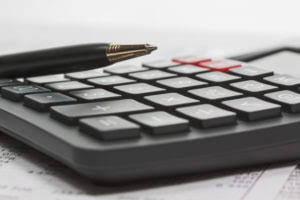Cómo usar el Simulador de préstamos prestamo online para calcular Por así decirlo. Facturas
10 Gennaio 2022Giri Gratuiti winorama contatti Confusione Online Senza Tenuta
16 Gennaio 2022
With an accurate record of all transactions, you can easily discover any discrepancies between financial statements and what’s been recorded. This will allow you to quickly catch any errors that could become an issue down the road. Bookkeeping is just one facet of doing business and keeping accurate financial records. With well-managed bookkeeping, your business can closely monitor its financial capabilities and journey toward heightened profits, breakthrough growth, and deserved success. In this guide, we’ll go over the basics of payroll, bookkeeping and accounting. We’ll outline the tasks each may do, and the role each plays in your business.
As such, it’s important to know whether you need a bookkeeper or an accountant to keep track of your affairs. That may be tough since bookkeeping and payroll services the roles and responsibilities may intertwine. Accountants and bookkeepers work with numbers and financial data all day long.
What Is Bookkeeping?
There’s no one-size-fits-all answer to efficient bookkeeping, but there are universal standards. The following four bookkeeping practices can help you stay on top of your business finances. If you’re new to business, you may be wondering about the importance of bookkeeping.

When interviewing for a CPA, look for an accountant who understands tax law and accounting software and has good communication skills. They should understand your industry and the unique needs and requirements of small businesses. To earn the certified public bookkeeper license, bookkeepers must have 2,000 hours of work experience, pass an exam and sign a code of conduct. They must take 24 hours of continuing education each year to maintain their license. Bookkeepers record financial transactions, post debits and credits, create invoices, manage payroll and maintain and balance the books. Bookkeeping, in the traditional sense, has been around as long as there has been commerce ? since around 2600 B.C.
Best Free Accounting Software for Small Businesses
There is a difference between an accountant and a certified public accountant (CPA). Although both can prepare your tax returns, a CPA is more knowledgeable about tax codes and can represent you if you get audited by the IRS. There are no formal educational requirements to become a bookkeeper, but they must be knowledgeable about financial topics and accounting terms and strive for accuracy. A bookkeeper is not an accountant, nor should they be considered an accountant. Bookkeeping is primarily concerned with the accurate recording of financial transactions.
That way, you can be well prepared when it’s time to file taxes with the IRS. Without any hiccups or last-minute scrambles, you’ll be able to enter tax season confidently. They also collect data, as well as calculate net pay, and in some cases, withhold and pay taxes.
What Is a Payroll Tax Cut?
Awarded by the CFA Institute, the CFA certification is one of the most respected designations in accounting. In this program, accountants learn about portfolio management, ethical financial practices, investment analysis and global markets. To complete the program, accountants must have four years of relevant work experience. Generally, accountants must have a degree in accounting or finance to earn the title.
What Is Payroll Accounting? – businessnewsdaily.com – Business News Daily
What Is Payroll Accounting? – businessnewsdaily.com.
Posted: Mon, 23 Oct 2023 07:00:00 GMT [source]
Whether it be the bookeepers, accountants, or payroll service provider, all three have drastically different functions that focus on details one would normally overlook. When a bookkeeper wants to leap to being an accountant, they will need to take the CPA exam, plus earn a bachelor’s degree (most of the time), if they do not have one already. Fifty states plus the District of Columbia require accountants to earn 150 credit hours of college education before taking the national four-part Uniform CPA exam. As an accountant, you must pay attention to figures and financial details, but it is more essential to possess sharp logic skills and big-picture problem-solving abilities. Bookkeepers often get paid hourly wages rather than annual salaries.
